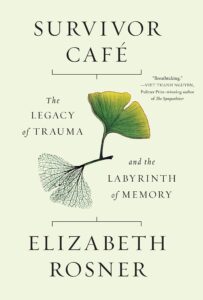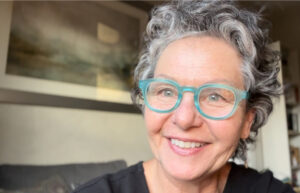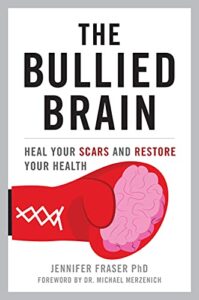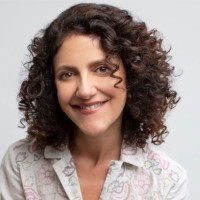by Rona | Jul 24, 2023 | KPFA, Podcasts, Radio Shows

KPFA Radio, 94.1FM, 7/31/23
Joining me was author Elizabeth Rosner, discussing her book, Survivor Café: The Legacy of Trauma and the Labyrinth of Memory, where she looks at how descendants of atrocities cope with inherited trauma.
As the child of parents who survived the Holocaust, Elizabeth explores the collective memory of the murder of 6 million Jews, the genocide in Rwanda, and the bombings in Hiroshima and Nagasaki. She stresses the vital importance of telling stories as a part of the medicine needed to understand and heal from these historic events, as well as from the racism, terrorism, and anti-Semitic traumas that people are experiencing in current time.
Guest

Elizabeth Rosner is an author, teacher, and lecturer whose work focuses on the redemptive power of storytelling and deep listening. Her books have been translated into ten languages and have received several literary prizes in the US and abroad. Her most recent book of creative nonfiction, Survivor Café: The Legacy of Trauma and the Labyrinth of Memory, explores the intergenerational aftermath of atrocities while offering hard-won hope for individual as well as collective resilience. Raised in upstate New York as the daughter of two Holocaust survivors, Elizabeth’s writing interweaves personal reflection with scholarly research, revealing the profoundly resonant impacts of the past upon the present. She leads writing workshops locally in Berkeley as well as internationally; her teaching carries forward a message of perseverance and tenacious optimism.
More about all of her work can be found on her website: www.elizabethrosner.com.
by Rona | Jul 28, 2022 | KPFA, Nurse Rona, Podcasts
Bullying and abuse can be seen in all corners of society from children’s playgrounds, to baseball practice, and dance class. We also see adult bullying in the classroom, at summer camp, at home, on the job, and in the political arena. The psychological trauma of being bullied produces damage to the developing brain, and the child who is doing the bullying also suffers. The bullied brain can heal, and children can be taught to not fall victim to bullying. Join us to learn more.
Listen now to About Health on KPFA.org— 94.1FM (8/1/22)

 My guest is best-selling author and award-winning teacher, Jennifer Fraser. With a PhD in Comparative Literature from the University of Toronto, Jennifer is trained to take different discourses—literature, anthropology, psychology, pedagogy, neuroscience, philosophy—and put them into dialogue. Her wide-ranging knowledge, lived experience, dedication to learning and teaching, produce new insights into age-old problems. Not content to merely discuss, Jennifer’s goal is to set in motion significant change. Her latest book is The Bullied Brain: Heal Your Scars and Restore Your Health. Jennifer’s first book was on the rite of passage from being a reader to a writer of culture. Her second book was on suppressing grief in childhood, only to have it resurface as either numbness or aggression. Her third book was about the way children learn bullying from influential adults. She is interested in designing a world with our brain in mind. Go to https://www.bulliedbrain.com/ to learn more.
My guest is best-selling author and award-winning teacher, Jennifer Fraser. With a PhD in Comparative Literature from the University of Toronto, Jennifer is trained to take different discourses—literature, anthropology, psychology, pedagogy, neuroscience, philosophy—and put them into dialogue. Her wide-ranging knowledge, lived experience, dedication to learning and teaching, produce new insights into age-old problems. Not content to merely discuss, Jennifer’s goal is to set in motion significant change. Her latest book is The Bullied Brain: Heal Your Scars and Restore Your Health. Jennifer’s first book was on the rite of passage from being a reader to a writer of culture. Her second book was on suppressing grief in childhood, only to have it resurface as either numbness or aggression. Her third book was about the way children learn bullying from influential adults. She is interested in designing a world with our brain in mind. Go to https://www.bulliedbrain.com/ to learn more.
by Rona | Jun 3, 2022 | KPFA, Podcasts
There is collective trauma in our nation, with the Covid-19 pandemic and the horrific gun violence epidemic. With the recent shootings in Buffalo, Uvalde, and Tulsa, people are once again dealing with the deep pain of loss, grief, anger, and fear. The trauma of gun violence impacts all of us, but our children are suffering in ways that are so hard to witness. What can teachers, parents, and all adults do to lessen the burden?
Listen now to About Health, KPFA—94.1FM (6/6/22)
What you are doing to help the children in your life during this painful time?
Guest:

Julie Kurtz is a child and family therapist and national speaker consulting and training on trauma and resilience. She is the Founder and CEO for the Center for Optimal Brain Integration® which promotes the concept of optimal brain integration to maximize human growth potential.
Julie is the co-author of—Trauma-Informed Practices for Early Childhood Educators: Relationship-Based Approaches that Support Healing and Build Resilience in Young Children, Culturally Responsive Self-Care Practices for Early Childhood Educators, Trauma Informed Practices for Early Childhood Leaders: Creating and Sustaining Healing and Engaged Organizations, and Trauma-Responsive Family Engagement in Early Childhood: Practices for Equity and Resilience. She is also the author of the award winning children’s books, Understanding My Brain: Becoming Human(E)! (Ages 4-8 and 5-10). Julie is the creator of the phone/tablet Application (APP) Trigger Stop: Sensory and Emotional Check-in designed specifically for children ages 3-8 years to promote sensory and emotional literacy and to support self-regulation. To learn more go to https://www.optimalbrainintegration.com/.
by Rona | Aug 15, 2018 | Announcements, KPFA, Podcasts, Radio Shows
Listen now to today’s show (8/20/18) on “About Health” KPFA 94.1FM
 The ACE’s study is one of the largest investigations conducted to assess associations between childhood maltreatment and later-life health and well-being. The study is a collaboration between the Centers For Disease Control (CDC) and Kaiser Permanente’s Health Appraisal Clinic in San Diego.
The ACE’s study is one of the largest investigations conducted to assess associations between childhood maltreatment and later-life health and well-being. The study is a collaboration between the Centers For Disease Control (CDC) and Kaiser Permanente’s Health Appraisal Clinic in San Diego.
How have the adverse experiences of your childhood impacted your physical and emotional health as an adult? Some steps in healing is understanding and untangling what happened, talking about the trauma, and learning resiliency skills. When a child is acting out in school, or an adult is abusing drugs or alcohol we can ask, “What happened to her, instead of what’s wrong with her.”
Guests:
Lisa Frederiksen is the author of hundreds of articles and 11 books, including “If You Loved Me, You’d Stop!,” “Addiction Recovery: What Helps, What Doesn’t,” and “Secondhand Drinking: the Phenomenon That Affects Millions.” She is a national keynote speaker with over 30 years speaking experience, consultant, and founder of BreakingTheCycles.com. She has spent more than 15 years studying 21st century brain research in order to write, speak, and consult on a range of brain-related topics, including: ACEs, toxic stress, trauma, substance use disorders, secondhand drinking, mental illness, brain development, and addiction treatment and recovery. Some of her consulting has been overseas in countries such as Kenya, Slovenia, and Mexico. Lisa is an active member of the ACEs Connection~Resilient Sac Community.
Wendie Skala, BSN, MS. When she first became a nurse she specialized in intensive care and emergency nursing. Wendie flew for Stanford Life Flight for 10 years and honed her skills in prehospital transport of critically injured patients. She joined the Air Force Reserve in 1999 and achieved the rank of Lt. Col. while serving 7 deployments overseas in support of OPERATION IRAQI AND ENDURING FREEDOM. Along with transporting wounded warriors, she assumed command and control roles and functioned as the Chief Nurse for air operations in Afghanistan, and she earned her Masters’ Degree in Military Science. In 2009, she took on the role as the Injury Prevention Coordinator for Kaiser Permanente’s first trauma center in South Sacramento. There she implemented the Sacramento Violence Intervention Program that provided services for shot, stabbed, and almost assaulted to death victims of violence along with her other work preventing motor vehicle crashes and older adult falls. Some of the programs she championed in the community included the Alternatives to Violence Program and Standing Up Resilient Sac, an ACEs Connection Collaborative. In her role at Kaiser Permanente, Wendie worked with law enforcement, schools, non-profits, and government agencies to educate about ACEs and Trauma Informed Care. She has presented nationally on the subject and is a contributing author and educator of the American Trauma Society’s Injury Prevention Course. Currently, Wendie is Adjunct Faculty at Samuel Merritt’s School of Nursing in Sacramento and continues to work with ACEs Connection and Resilient Sac.
Resources:
Nadine Burke Harris, MD is the author of the book “the deepest well, Healing the Long-Term Effects of Childhood Adversity.
by Rona | Dec 21, 2017 | Announcements, Appearances, KPFA, Podcasts, Radio Shows
 If you missed the show on @KPFA 94.1FM on Christmas Day (12/25/17) you can listen now: https://kpfa.org/player/?audio=275452
If you missed the show on @KPFA 94.1FM on Christmas Day (12/25/17) you can listen now: https://kpfa.org/player/?audio=275452
The holiday season can be difficult for people suffering from trauma or post-traumatic stress disorder…better know as PTSD. During this time of year some people try to avoid situations that trigger memories of a traumatic event, or they avoid people they feel uncomfortable around. Sometimes family or friends are involved in a history of trauma, and seeing a specific person can be really challenging. The holidays are “supposed to be joyful” but some people feel alienated for not pretending to be happy. And sometimes a person doesn’t even realize why she’s feeling down around this time of year. It can be really helpful to understand some of the causes that are influencing your emotional state, and also what to do about it.
Guest:
 Rachel Walker received a Masters Degree in Counseling Psychology from the California Institute of Integral Studies, where she specialized in Expressive Arts Therapy. In the past she worked with people with chronic mental illnesses such as schizophrenia, with criminal offenders, and with people suffering from addictions. She has provided individual, couple, and family therapy to clients facing a wide range of clinical issues including: anxiety, trauma, addiction, divorce, grief, bi-polar, cultural and diversity issues, eating disorders and creative and professional blocks. She is trained in modern dance and contact improvisation and Authentic Movement. Rachel has also studied improvisational writing, theater, and voice. Currently she sees clients as an EMDR and Expressive Arts Therapist in Berkeley, California. She is a certified EMDR therapist and approved EMDR consultant. Go to http://rachelwalkermft.com/ to learn more about her work.
Rachel Walker received a Masters Degree in Counseling Psychology from the California Institute of Integral Studies, where she specialized in Expressive Arts Therapy. In the past she worked with people with chronic mental illnesses such as schizophrenia, with criminal offenders, and with people suffering from addictions. She has provided individual, couple, and family therapy to clients facing a wide range of clinical issues including: anxiety, trauma, addiction, divorce, grief, bi-polar, cultural and diversity issues, eating disorders and creative and professional blocks. She is trained in modern dance and contact improvisation and Authentic Movement. Rachel has also studied improvisational writing, theater, and voice. Currently she sees clients as an EMDR and Expressive Arts Therapist in Berkeley, California. She is a certified EMDR therapist and approved EMDR consultant. Go to http://rachelwalkermft.com/ to learn more about her work.








 Rachel Walker received a Masters Degree in Counseling Psychology from the California Institute of Integral Studies, where she specialized in Expressive Arts Therapy. In the past she worked with people with chronic mental illnesses such as schizophrenia, with criminal offenders, and with people suffering from addictions. She has provided individual, couple, and family therapy to clients facing a wide range of clinical issues including: anxiety, trauma, addiction, divorce, grief, bi-polar, cultural and diversity issues, eating disorders and creative and professional blocks. She is trained in modern dance and contact improvisation and Authentic Movement. Rachel has also studied improvisational writing, theater, and voice. Currently she sees clients as an EMDR and Expressive Arts Therapist in Berkeley, California. She is a certified EMDR therapist and approved EMDR consultant. Go to
Rachel Walker received a Masters Degree in Counseling Psychology from the California Institute of Integral Studies, where she specialized in Expressive Arts Therapy. In the past she worked with people with chronic mental illnesses such as schizophrenia, with criminal offenders, and with people suffering from addictions. She has provided individual, couple, and family therapy to clients facing a wide range of clinical issues including: anxiety, trauma, addiction, divorce, grief, bi-polar, cultural and diversity issues, eating disorders and creative and professional blocks. She is trained in modern dance and contact improvisation and Authentic Movement. Rachel has also studied improvisational writing, theater, and voice. Currently she sees clients as an EMDR and Expressive Arts Therapist in Berkeley, California. She is a certified EMDR therapist and approved EMDR consultant. Go to